With new technologies revolutionizing data collection, wildlife researchers are becoming increasingly able to collect data at much higher volumes than ever before. Now we are facing the challenges of putting this information to use, bringing the science of big data into the conservation arena. With the help of machine learning tools, this area holds immense potential for conservation practices. The applications range from online trafficking alerts to species-specific early warning systems to efficient movement and biodiversity monitoring and beyond.
However, the process of building effective machine learning tools depends upon large amounts of standardized training data, and conservationists currently lack an established system for standardization. How to best develop such a system and incentivize data sharing are questions at the forefront of this work. There are currently multiple AI-based conservation initiatives, including Wildlife Insights and WildBook, that are pioneering applications on this front.
This group is the perfect place to ask all your AI-related questions, no matter your skill level or previous familiarity! You'll find resources, meet other members with similar questions and experts who can answer them, and engage in exciting collaborative opportunities together. The AI for Conservation group provides a dedicated space to:
- Bridge disciplines: Create a space where ecologists, conservationists and environmental scientists can connect with computer scientists, artificial intelligence researchers and practitioners to address shared challenges.
- Advance knowledge: Share and discuss research, case studies and best practices at the intersection of artificial intelligence and conservation.
- Education: Provide educational resources that help ecologists understand AI methods and their use cases and inspire AI experts to learn about ecological applications.
- Facilitate collaboration: Offer resources and networking opportunities that enable AI researchers and conservation practitioners to co-develop solutions with real-world conservation impact.
Just getting started with AI in conservation? Check out our introduction tutorial, How Do I Train My First Machine Learning Model? with Daniel Situnayake, and our Virtual Meetup on Big Data. If you're coming from the more technical side of AI/ML, Sara Beery runs an AI for Conservation slack channel that might be of interest. Message her for an invite.
Header Image: Dr Claire Burke / @CBurkeSci

Explore the Basics: AI
Understanding the possibilities for incorporating new technology into your work can feel overwhelming. With so many tools available, so many resources to keep up with, and so many innovative projects happening around the world and in our community, it's easy to lose sight of how and why these new technologies matter, and how they can be practically applied to your projects.
Machine learning has huge potential in conservation tech, and its applications are growing every day! But the tradeoff of that potential is a big learning curve - or so it seems to those starting out with this powerful tool!
To help you explore the potential of AI (and prepare for some of our upcoming AI-themed events!), we've compiled simple, key resources, conversations, and videos to highlight the possibilities:
Three Resources for Beginners:
- Everything I know about Machine Learning and Camera Traps, Dan Morris | Resource library, camera traps, machine learning
- Using Computer Vision to Protect Endangered Species, Kasim Rafiq | Machine learning, data analysis, big cats
- Resource: WildID | WildID
Three Forum Threads for Beginners:
- I made an open-source tool to help you sort camera trap images | Petar Gyurov, Camera Traps
- Batch / Automated Cloud Processing | Chris Nicolas, Acoustic Monitoring
- Looking for help with camera trapping for Jaguars: Software for species ID and database building | Carmina Gutierrez, AI for Conservation
Three Tutorials for Beginners:
- How do I get started using machine learning for my camera traps? | Sara Beery, Tech Tutors
- How do I train my first machine learning model? | Daniel Situnayake, Tech Tutors
- Big Data in Conservation | Dave Thau, Dan Morris, Sarah Davidson, Virtual Meetups
Want to know more about AI, or have your specific machine learning questions answered by experts in the WILDLABS community? Make sure you join the conversation in our AI for Conservation group!
Group curators
- @annavallery
- | she/her
Seabird biologist experienced in research and applied conservation. Dedicated to conducting and using innovative research to inform conservation decisions.


- 0 Resources
- 3 Discussions
- 7 Groups
- @ViktorDo
- | he/him
PhD student at University of Exeter & University of Queensland. Interested in researching AI and its responsible application to Ecology, Environmental Monitoring and Nature Conservation.

- 0 Resources
- 0 Discussions
- 5 Groups



- 0 Resources
- 2 Discussions
- 8 Groups
No showcases have been added to this group yet.
- @JackEdney
- | He/Him
Machine Learning Engineer specialised in computer vision and a passion for conservation and rebuilding.
- 1 Resources
- 1 Discussions
- 5 Groups
Luxembourg Institute of Science and Technology
Undertake and develop biodiversity monitoring


- 6 Resources
- 10 Discussions
- 4 Groups
My name is Caroline from Nairobi Kenya. I am a new entrant into wildlife conservation space and am looking forward to learning a lot more
- 0 Resources
- 2 Discussions
- 2 Groups
University of St Andrews
I am a Senior Lecturer at the University of St Andrews, Scotland. My research is focused on developing acoustic species classifiers for marine mammals worldwide.
- 0 Resources
- 2 Discussions
- 6 Groups
- @kwalker3
- | she/her
The Nature Conservancy
Spatial Conservation Scientist and Program Manager
- 0 Resources
- 0 Discussions
- 3 Groups
- 0 Resources
- 0 Discussions
- 5 Groups
I am a technologist of 20+ years. My undergraduate degree is in conservation biology, and I am looking for opportunities to bridge my technical expertise with conservation efforts.
- 0 Resources
- 0 Discussions
- 1 Groups
Zoologist, currently serving as Head of Field Studies at Absolute Adventure (UAE). An environmental education professional with expertise in program development: field studies, wildlife conservation, research-based fieldwork, and outdoor education.
- 0 Resources
- 0 Discussions
- 4 Groups
- @LukeSwaby
- | He/Him
Data Research Scientist at a leading multinational aerospace and defence company, looking to transition to a career in conservation AI. Experience covering a broad range of cutting-edge research topics across bioinformatics and machine learning.
- 0 Resources
- 5 Discussions
- 1 Groups
Control and Automation Engineer, currently enrolled in the Automation and Systems Postgraduate Program at Federal University of Santa Catarina (UFSC) in Brazil to obtain a Master's degree. Areas of interest: Multi Agent Systems, Artificial Intelligence, Robotics.

- 0 Resources
- 1 Discussions
- 4 Groups
World Wide Fund for Nature/ World Wildlife Fund (WWF)
- 0 Resources
- 4 Discussions
- 8 Groups
- @Rewildman
- | He/Him
Eco-entrepreneur. Concerned with the fundamental interconnectedness of all things creative and environmental.
- 0 Resources
- 2 Discussions
- 8 Groups
Comments on Reynolds, S.A et all (2024) 'The potential for AI to revolutionize conservation: a horizon scan'. A very interesting read, perhaps more for the discussion on negative effects of AI and consequences for the...
18 December 2024
The Department of Wildlife, Fish, and Environmental Studies (WFE), SLU, Umeå, is looking for a postdoc with strong interests in wildlife conservation technology. She/he will work within Big Picture, a European project...
18 December 2024
Fully funded 2 year position within a Biodiversa+ funded project
16 December 2024
Develop state-of-the-art interactive ML-based tools for biodiverstiy conservation and related applications
11 December 2024
Join the San Diego Zoo Wildlife Alliance as a Postdoctoral Fellow! Lead groundbreaking bioacoustic and ML research to conserve burrowing owls in SoCal.
26 November 2024
The paper looks at technology advances for vegetation cover changes monitoring. For example, computer vision methods to infer 3D parameters via contextual learning from optical images.
25 November 2024
Interesting webinar on the use of advanced technologies(e.g. Artificial Intelligence, cloud computing, drones, camera traps and satellites) for biodiversity monitoring in the Amazon. Also available in Spanish.
25 November 2024
Careers
We are hiring a computer vision developer at the University of Florida!
20 November 2024
Dive into meaningful play with FathomVerse!
20 November 2024
1 year research role working on the FrogID citizen science project
13 November 2024
Are you stuck on an AI or ML challenge in your conservation work? Apply now for the chance to receive tailored expert advice from data scientists! The deadline for applications is Monday 9 December 2024.
13 November 2024
Wildlife on roads creates a significant hazard in rural areas, to humans and animals alike. Low-tech prevention methods such as overpasses give great results, but they are expensive and can’t cover every scenario. Now...
12 November 2024
September 2025
event
event
event
event
October 2025
event
event
event
December 2025
event
March 2026
event
83 Products
Recently updated products
17 Products
Recently updated products
| Description | Activity | Replies | Groups | Updated |
|---|---|---|---|---|
| Hello everyone,I’ve been running a set of trail cameras for several months and now have thousands of images showing consistent activity... |
|
Camera Traps, AI for Conservation, Animal Movement | 13 minutes 41 seconds ago | |
| Hello WildLabs community,Here's an update on our progress with the AI-based marine mammal sound detection platform.What We've AccomplishedWe've completed our first milestone:... |
|
Acoustics, AI for Conservation, Marine Conservation | 58 minutes 38 seconds ago | |
| hi chad, its great to hear from you_its really a great idea and impactful journey in our community having experience in community-led conservation initiatives, working... |
|
Acoustics, AI for Conservation, Animal Movement, Camera Traps, Citizen Science, Climate Change, Community Base, Connectivity, Drones, eDNA & Genomics, Emerging Tech, Funding and Finance, Geospatial, Human-Wildlife Coexistence, Software Development, Wildlife Crime | 1 day 5 hours ago | |
| Hi everyone :)I’ll be in Kinshasa, DRC from 22 to 27 September as part of the AFRISTART program (Qawafel/RedStart Tunisie), which supports... |
|
AI for Conservation, Community Base, East Africa Community, Edge Computing | 1 day 7 hours ago | |
| We sell a product that includes the model, but we don't have a freely downloadable model for that purpose. You could try pytorch wildlife or speciesnet for a version to compare... |
|
AI for Conservation, Camera Traps, Edge Computing | 6 days 7 hours ago | |
| in the last 3 months we hosted allander hobbs, an under graduated student from the university of edinbrugh, UK .during his interactive... |
|
AI for Conservation, Animal Movement, Autonomous Camera Traps for Insects, Citizen Science | 6 days 1 hour ago | |
| Thanks for the informative videos ... wondered if anyone had recommendations for best IR PoE camera for monitoring wildlife at nighttime? my setup is to stream to a frigate server... |
+15
|
AI for Conservation, Autonomous Camera Traps for Insects, Camera Traps, Edge Computing | 1 week ago | |
| Hi Youssef,Yes I've been following along and am looking forward to this group!Feel free to share whatever! |
+16
|
AI for Conservation, Camera Traps, Edge Computing | 1 week 1 day ago | |
| Hey Alejandro, thanks for trying it! :))The feature you are asking about is called in technical language - animal re-identification. Unfortunately, we currently don't have this... |
|
AI for Conservation, Camera Traps, Data Management & Mobilisation, Software Development | 1 week 4 days ago | |
| Very inspiring! I completely agree that AI should help free conservationists from repetitive tasks so they can focus on strategy and fieldwork. In our IDEPROCONA project in... |
|
AI for Conservation | 1 week 6 days ago | |
| I create ocean exploration and marine life content on YouTube, whether it be recording nautilus on BRUVs, swimming with endangered bowmouth... |
|
Acoustics, AI for Conservation, Animal Movement, Camera Traps, Citizen Science, Drones, Emerging Tech, Marine Conservation, Sensors, Sustainable Fishing Challenges, Wildlife Crime | 2 months ago | |
| I think it is time for exploring many AI s application around our careers and projects. With waste management too! this is also very interesting |
|
AI for Conservation | 2 weeks ago |
Upcoming AI for Conservation Events and Webinars
29 October 2020 10:57am
Tech Tutors: How do I train my first machine learning model?
18 June 2020 1:19pm
8 October 2020 9:45pm
Hi Wildlabbers,
Just popping in to share this very cool primer for beginners to embedded machine learning from our tutor Daniel Situnayake! If you're interested in learning more about the basics of TinyML, this is a great resource.
-Ellie
Training Opportunity: HarvardX TinyML Course
 edX
edX
30 September 2020 12:00am
Webinar: Advances in Fisheries Electronic Monitoring
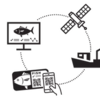 SAFET
SAFET
21 September 2020 12:00am
Monitoring Otters using FIT: Challenges and Discoveries!
6 September 2020 4:52pm
9 September 2020 11:06pm
So interesting, thanks for sharing! It's always really helpful for the community to hear about the trial and error that goes into fieldwork. I also never realized that heat-sensing camera traps don't work on certain animals like otters, really curious to learn more - are there strategies to deal with that problem?? Maybe someone from our camera trap group could chime in on that aspect?
11 September 2020 2:26pm
Hi Ellie,
thanks for your interest. So I have two possible explanations why the camera traps I used did not release, even though I found otter droppings directly in front of my camera (and later my happy face that I must have gotten them this time even though it was not the case).
I. The Cameras I used in that specific campaign where quite old and I am not too experienced in using them so maybe I did not set them up correctly. This is something I will try to overcome with newer cameras and more training in my next field campaign whenever COVID allows me to travel again...
II. Otters are very well insulated having more than 70k of hair per cm2. I found some fabulous infrared images in a book from Irene Weinberger that showed how little heat otters actually emit and that otters only differed significantly from the background radiation at there feet and nose. So another explanation of mine is that unless these bodyparts are captured by the camera's sensor the camera won´t release.
I will try new Cameratraps the next time I will have the opportunity to do fieldwork in Portugal and will let you know how it went. Until then I will try to work my way around it using footprints :-).
Tech Tutors: Review Session
3 September 2020 12:00am
Sustainable Fishing Challenges: Fishing Gear Innovations
19 August 2020 12:00am
Challenge: ElephantEdge
11 August 2020 12:00am
Event: StreamingScience's #Tech4Wildlife Thursdays
 StreamingScience
StreamingScience
3 August 2020 12:00am
Automated Fish Identification and Abundance Using Artificial Intelligence
28 July 2020 12:00am
Development of Non-Invasive Techniques for Identifying Eurasian Otter Populations in Lebanon
21 July 2020 4:06pm
BearID To Go
21 July 2020 12:00am
Thinking Outside the Box: Using FIT for Box Turtle Shell ID
8 July 2020 5:22pm
14 July 2020 4:10am
The issue of how community-gathered data can be made safe yet accessible is rapidly emerging as a huge challenge in conservation biology. We'd love to hear input from the Wildlife Crime Forum on this.
15 July 2020 8:46am
Hi,
Our tortious tracks look like this. we still haven't started to work on this project.
tracking is the best way to monitor the population of Kleinmann's tortoise in its andy habitat.
Hopefully, we will be able to begin next year a project with drones.
16 July 2020 7:37pm
How neat, thanks for sharing! We'd love to hear more about your drone project once it's underway, please keep us updated on that one!
Competition: Cornell Birdcall Identification
8 July 2020 12:00am
Tech Tutors: How do I get started using ML for my camera traps? Building Accurate Project-Specific Models
25 June 2020 12:02am
25 June 2020 6:01pm
26 June 2020 2:32pm
Hi everyone!
We've now posted Sara's session to our youtube channel, and I've also popped it up the top of this thread.
The collaborative notes worked really well! I've now updated them to capture what happened in the chat - it should be a helpful companion to go alongside the recording. The notes have links, projects, and key discussions we saw in the chat, and summarise the questions Sara coverd in the discussion as well as the Qs we weren't able to get to (40mins overtime was our limit!). If your question was one of the outstanding ones and you'd like to have it answered, please drop it in the discussion below.
The notes now also have the participant check ins (such an awesome range of places, projects and interests!) - I'm sharing these as seeing what other people are doing might help you connect with each other. If you see someone you want to connect with, try and find them using our member direcyour people tab. If you can't, email Ellie and she will see if that person is happy to hear from you before connecting you.
Reminder, registration is open for Carlos' tutorial next week: How do I perform automated recordings of bird assemblages? Register here.
Thanks everyone!
Steph
2 July 2020 8:58pm
Great talk! I thoroughly enjoyed it. Some high schoolers have done small AI projects(s) and have interest in the wildlife.
What resources would you all suggest to further develop high schooler’s interest in AI?
Advancing Monitoring of Endangered Forest Carnivores using Footprint Identification Technology (FIT)
29 June 2020 10:42pm
How do I scale up acoustic surveys with Audiomoths?
25 June 2020 12:00am
How do I perform automated recordings of bird assemblages?
 Carlos Abrahams
Carlos Abrahams
19 June 2020 12:00am
How do I train my first machine learning model?
 Daniel Situnayake
Daniel Situnayake
9 June 2020 12:00am
How do I get started using Machine Learning for my camera traps?
9 June 2020 12:00am
Innovator Interview: Hack the Poacher
4 June 2020 12:00am
The Perfect Paw Print: Collecting Data with FIT
3 June 2020 12:00am
Competition: 2020 Hackaday Prize
26 May 2020 12:00am
WILDLABS Tech Tutors: Season One
19 May 2020 12:00am
Endangered Species Day Friday 15th May!
14 May 2020 9:04pm
Get To Know FIT
6 May 2020 12:00am
Competition: iWildCam 2020
4 May 2020 12:00am
Training Course: Quantitative Analysis of Marine & Coastal Drone Data
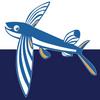 Duke Marine Lab
Duke Marine Lab
29 April 2020 12:00am
Call for Submissions – Arm Research Summit 2020
24 April 2020 12:00am
WILDLABS Tech Hub: WWF PandaSat
13 April 2020 12:00am

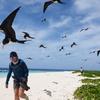

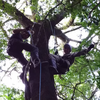


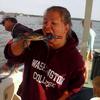

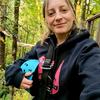

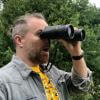


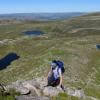

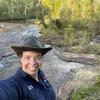















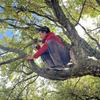








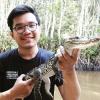








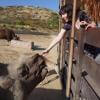




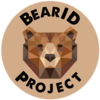
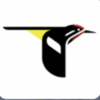



29 October 2020 11:02am
AI for Climate Forum: Lightning Talks
Bonnie Lei, Microsoft AI for Earth - 4pm GMT, October 30
Register here: https://us02web.zoom.us/webinar/register/WN_wO6ek5dTSMOmYqeMCDbkoQ
As part of the AI for Climate Forum 2020, we will host a series of Lighting Talks with industry leaders, academic representatives and researchers, NGO leaders, and policymakers; that will share ideas about the future of conservation and the harnessing of exponential technologies in the fight against climate change.
Next Guests:
October 30: Bonnie Lei, Head of Global Strategic Partnerships at AI for Earth/ Microsoft
November 6: Jenny Lawton, Startup Founder, and Innovation Expert